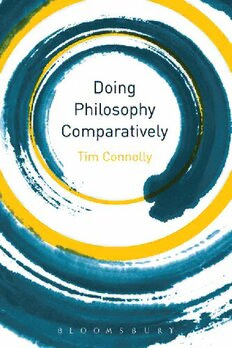
Doing Philosophy Comparatively PDF
243 Pages·2015·2.527 MB·English
Most books are stored in the elastic cloud where traffic is expensive. For this reason, we have a limit on daily download.
Preview Doing Philosophy Comparatively
Description:
Critics have argued that comparative philosophy is inherently flawed or even impossible. What standards can we use to describe and evaluate different cultures’ philosophies? How do we avoid projecting our own ways of thinking onto others? Can we overcome the vast divergences in history, language, and ways of organizing reality that we find in China, India, Africa, and the West?Doing Philosophy Comparatively is the first comprehensive introduction to the foundations, problems, and methods of comparative philosophy. It is divided into three parts:• A wide-ranging examination of the basic concepts of comparative philosophy, including “philosophy,” “comparison,” “tradition,” and “culture.”• A discussion of the central problems that arise in extending philosophy across cultural boundaries: linguistic, justificatory, and evaluative incommensurability; projection and asymmetry; and the validity of cultural generalizations.• A critical look at the dominant contemporary approaches to comparative philosophy.This book offers a basic tool-kit for doing philosophy at the cross-cultural level. Drawing on many examples from the past and present of comparative philosophy, including further reading suggestions and discussion questions, it engages readers in sustained reflection on how to think comparatively.
See more
The list of books you might like
Most books are stored in the elastic cloud where traffic is expensive. For this reason, we have a limit on daily download.
